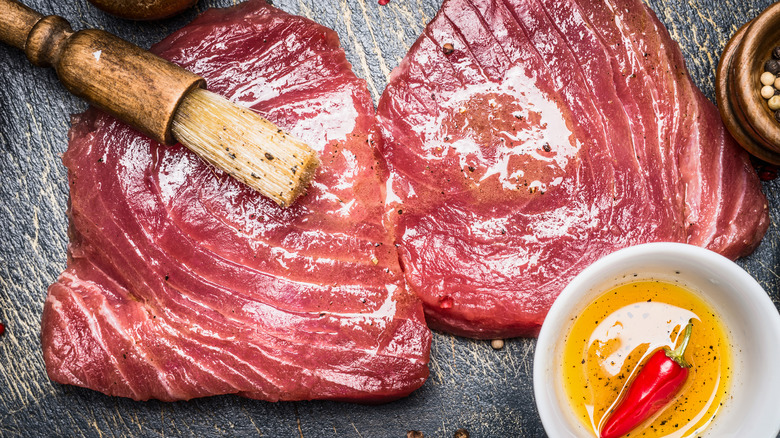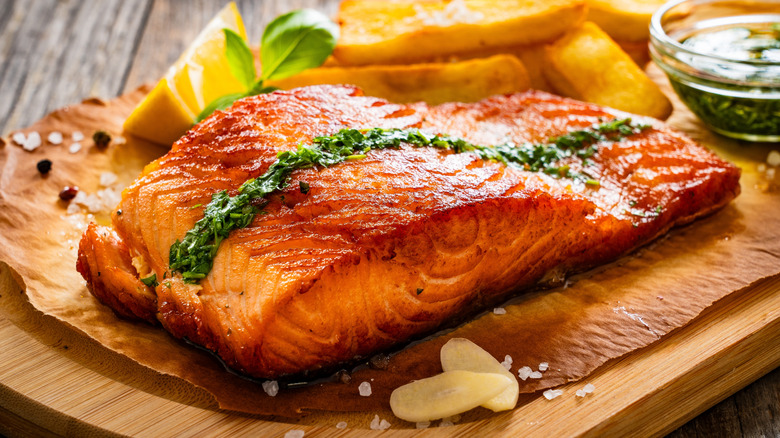The Best Cooking Method For Marinated Salmon And Tuna
Fish is already such a delicate yet delicious protein, and marinating it beforehand adds another layer of complexity to any recipe. To determine the best way to cook marinated tuna and salmon, Food Republic consulted Kory Foltz, Director of Culinary at the Sunseeker Resort, for his expert advice.
For both types of fish, Foltz says the marinade determines the cooking approach. If it has a lot of sugar or is particularly thick, you don't want to risk burning it. However, the right application of heat caramelizes the sugars and thickens the glaze, resulting in golden brown exteriors and moist interiors. "For tuna[,] it should be quick[,] high-heat application," Foltz says. "Grilling or pan-searing are my preferred cooking methods."
Although salmon flesh is similar to tuna's, Foltz takes a different approach. "I prefer a nice crust on my salmon, so high heat and then finish over medium heat," he says. "Grilling, roasting[,] or pan-searing are my preferred cooking methods." This searing technique offers the best of both worlds, creating a quality crust and a tender, perfectly cooked interior. It's an important distinction that accounts for the real differences in how tuna and salmon cook.
Why do salmon and tuna cook differently?
The reason different types of meat cook differently comes down to several factors, but the biggest one is fat content. Salmon contains 13 times more fat than tuna, making it far less likely to dry out when cooked for longer periods.
Chef Kory Foltz's suggestion to finish salmon over medium heat would dry out even the most high-quality, fatty tuna steak. However, if you like your fish well done, mayonnaise is the secret to keeping tuna moist. The mayo mimics the insulating fat that salmon has naturally, trapping its juices inside. Simply pat your marinated tuna dry and spread a thin layer of mayonnaise over its exterior. This creates a beautiful crust while keeping the meat moist and tender.
While salmon has plenty of natural fat, it's not immune to sticking on cooking surfaces. Whether you're baking in the oven or pan-searing on the stovetop, extra fat helps prevent ruining your salmon. Add oil to your marinade to thoroughly coat the fillets, then add another generous portion of oil to the baking sheet or pan to stop them from sticking. This provides a bit of protection from the heat and allows the fat in the brown or gray layer under the salmon's skin to render out, creating a rich, flavorful cut of protein. Following Foltz's method results in his signature crust without burning the exterior.


